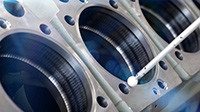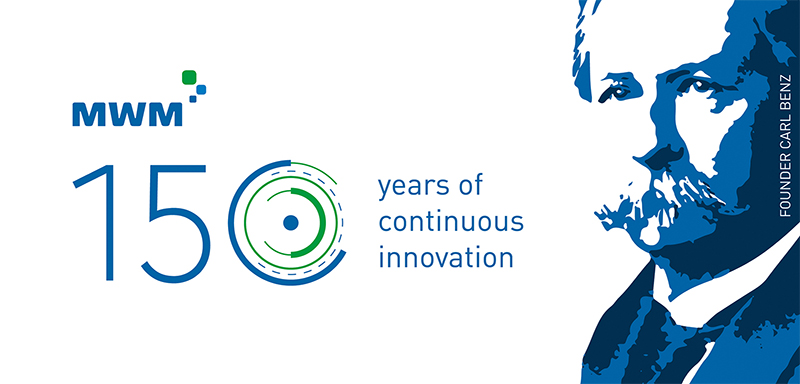Overhauled in just five days – Welsetal biogas plant
Welsetal, October 10, 2012
Gas engines used in biogas plants generate maximum power day in and day out. Maintenance has to be taken seriously to keep the generator set running smoothly and to avoid unnecessary costs caused by equipment failures.
New service concept reduces downtimes
The availability of a combined heat and power plant (CHP) is a key factor in its success and cost-effectiveness for the plant operator. Arnd Schwarting, director of the Welsetal biogas plant, knows this. “Reliability in day-to-day operation is one of the key indicators of plant profitability,” explains Schwarting, who has been operating his CHP plant in Ganderkesee for years with a series TCG 2016 V12 gas engine. He is not worried about the scheduled maintenance that is now coming due after 48,000 operating hours. Schwarting knows that MWM’s current service concept for maintenance class E70 means that all the work will be completed in just five days. Compared with the normal time needed to complete such an overhaul, this is a hefty reduction in downtime – up to 70%. That means big savings for the operator.
It gets better: In addition to the direct advantages of this service concept, the efficiency of the plant can also be optimized.
And after the work is finished, it will be guaranteed for 12 months. All the OEM replacement parts that are used have been properly tested, and of course they come directly from the manufacturer.
Expansion of the Welsetal biogas plant
It’s no wonder that the operator was smiling. “We were very satisfied with the work and have decided to order a second genset from MWM,” says Schwarting happily. So in the future the plant will have an electrical capacity of 1.2 MW el from two gas engines.
In the past the cogen plant was continuously producing 500 kW power per hour, which was fed into the grid of the northern German utility EWE. In the future the Ganderkesee biogas producer plans to devote more of its output to meeting the local demand for heat energy. “Our goal as a power plant is to operate as an intelligently managed small business,” explains Schwarting. The school center in Ganderkesee is currently being supplied with heat. In the future a community facility outside the town will also be supplied. The long-term goal is to supply heat to businesses in the future Grüppenbühren commercial park and to build a gas loop line.
“The plant is operated with sustainable raw materials and therefore is climate-friendly,” Schwarting emphasizes proudly. “Biogas is like solar energy, just with different means.” This is because all of the materials that are used can only grow with the sun’s help. The raw materials that are used to operate the plant are grass silage, corn, liquid manure and chicken manure. “And we will be adding other solid manures, such as horse manure,” explains Schwarting, who still has lots more planned for this region. It is an ambitious program, and naturally he needs partners who know what is important.
Working closely with partners and providing proven, customized service and first-rate products are the keys to high profitability and maximum efficiency. And MWM is just such a partner for Schwarting. Regular maintenance always pays off because it provides reliable operation. An added benefit is the opportunity to take advantage of product updates, that may improve the plant efficiency.


Contact Media
Aljoscha Kertesz
Manager Communications
T +49 621 48 18 35 76
E mwm-press@cat.com
Frank Fuhrmann
Online Editor
Member of DPV / German Press Association
T +49 621 48 18 35 16
E mwm-press@cat.com









































